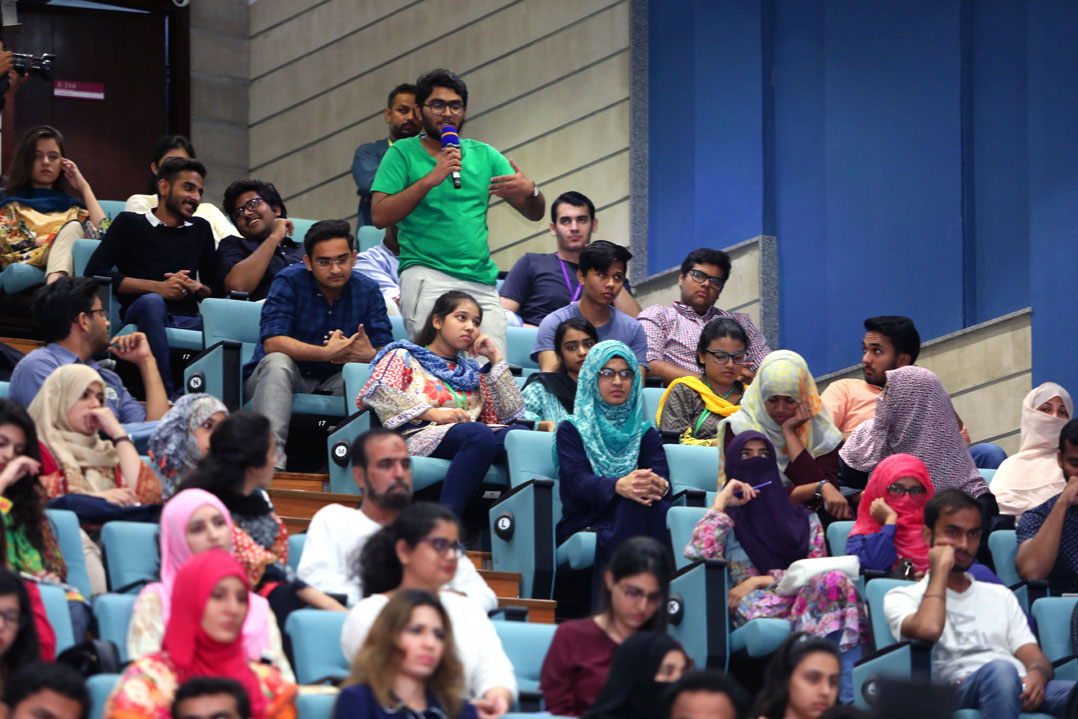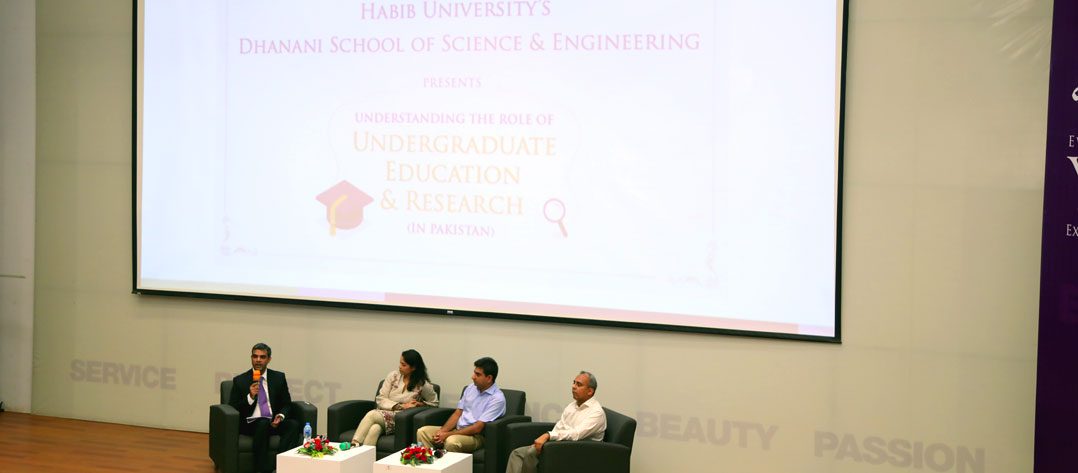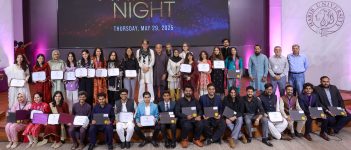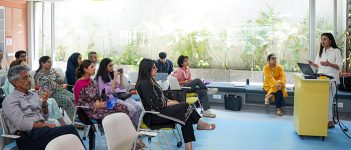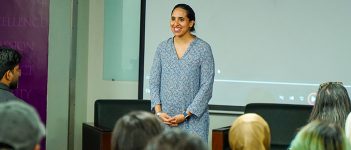Habib University hosted a symposium titled Understanding the Role of Education and Research in Pakistan, on 28th September, 2018. The symposium, which was open to the public, was moderated by Dr Waqar Saleem, Program Director, Computer Science, and Assistant Professor of the Dhanani School of Science and Engineering.
”
Dr. Waqar Saleem’s opening remarks at the Dhanani School of Science and Engineering Symposium | #DSSEsymposium #HabibUniversity pic.twitter.com/X5B3nerhzL
— Habib University (@HabibUniversity) September 28, 2018
Dr Saleem introduced Habib University as one of the largest, single donations towards an educational cause in Pakistan. He also introduced the audience to the newly inaugurated H. M. Habib Auditorium in which the event was held. Addressing the topic, Dr Saleem pointed out the “abysmal state of higher education” in our country, which is “comparable to and in some cases lower than countries in sub-Saharan Africa.” One of the major problems, he stated, had to do with “the compartmentalization of education.”
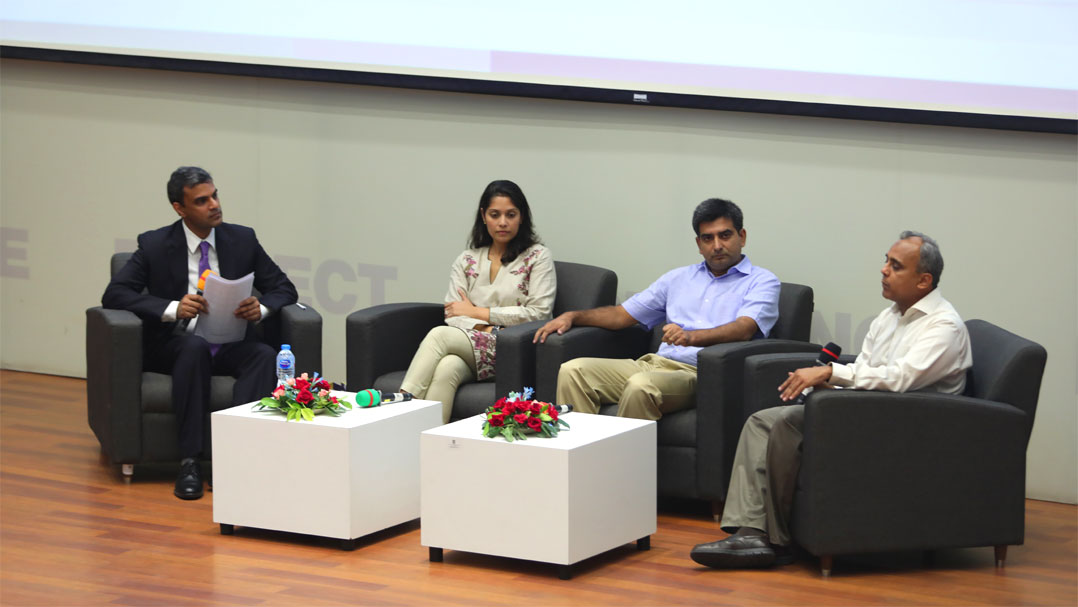 Right to Left: Dr Aamir Hasan, Dr Sabieh Anwar, Dr Kulsoom Ghias, and Dr Waqar Saleem.
Right to Left: Dr Aamir Hasan, Dr Sabieh Anwar, Dr Kulsoom Ghias, and Dr Waqar Saleem.
On the panel were Dr Kulsoom Ghias, PhD, Northwestern University’s Robert H. Lurie Comprehensive Cancer Centre, and Associate Professor, Department of Biological and Biomedical Sciences at Aga Khan University; Dr Sabieh Anwar, D.Phil, Department of Physics, Oxford University, and Associate Professor, Department of Physics, Lahore University of Management Sciences; and Dr Aamir Hasan, PhD, Electrical Engineering, University of Texas, Austin, and Associate Professor and Program Director, Electrical Engineering, Dhanani School of Science and Engineering, Habib University.
”
Dr. Aamir Hasan, Program Director of Electrical Engineering at Habib University, speaking at #DSSEsymposium pic.twitter.com/nTFqz7m9K5
— Habib University (@HabibUniversity) September 28, 2018
To begin with, the panel were asked about the lack of recognition in undergraduate students and how one could tackle this. “The situation is not very encouraging in Pakistan”, said Dr Aamir, “we need to understand internal enablers, such as institutions and faculty, which plays a huge role in recognizing students.”
“We don’t believe undergraduate students can contribute significantly to research and that is our problem. And those who believe they can do this do not know the right model to follow. We need to focus more on applied research,” he continued.
”
Dr. Sabieh Anwar, Associate Professor, Department of Physics, Lahore University of Management Sciences, speaking at #DSSEsymposium pic.twitter.com/3ukuWYemBf
— Habib University (@HabibUniversity) September 28, 2018
Dr Sabieh added to what Dr Aamir said- “the dichotomy between teaching and reach is artificial… research and teaching go hand in hand. They are not mutually exclusive, rather, they are about the values we attach to them.” He said while research is important at the graduate level, it can spill over into the undergraduate level- “concepts of graduate and undergraduate research can work in tandem. Placing the value of research should be passed onto students from a younger age… you cannot have a society that does not encourage research, or is closed and claustrophobic… you must have universities with a strong interface with the public that create curiosity, and that is the seed for research.”
The panel was then asked about the shift in ideology, where undergraduate research is now becoming more popular. According to Dr Aamir, “undergraduate research may have existed for a long time, written data suggests it started at MIT in the late 60s. Some of the countries shown on the top of the graph have shown that undergrad students being exposed to research have more of an effect on research than PhD students. The undergrad has more time on their hands to indulge in research, and worldwide it is believed that is the right time to expose them to research.”
”
Dr. Kulsoom Ghias, Associate Professor, Department of Biological and Biomedical Sciences at Aga Khan University, speaking at #DSSEsymposium pic.twitter.com/s3IrYSnCA0
— Habib University (@HabibUniversity) September 28, 2018
Dr Kulsoom added that “anyone who has a child at home would know the dreaded questions of why comes up very often. This is curiosity that needs to exist throughout our lives. Waiting until the undergraduate level is too late to spark that curiosity. It is very important to understand that times have changed, students have changed, and while older students have a more focused energy on research, and it doesn’t mean younger students can’t do it. We need to get over our fears and focus on the positivity that comes from curiosity.
I think academia has shot itself in the foot. If you focus on your career, you go up the ladder. If you focus on teaching, you have shot yourself in the foot. To be a good teacher, you can be a good researcher and that’s what ties it together.”
View this post on Instagram
Dr Waqar pointed out the biasness of the framework towards research at a higher level, shifting the discussion to how it could be overcome. Dr Anwar shared his disappointment with the lack of government support at this time, stating they are not an entity one can depend on to understand the problem in research that higher education is facing. He gave the example of Habib University’s structure that merged different disciplines into an interdisciplinary concept- “having different people from different departments sit together creates a melting pot of ideas and breaks set barriers.”
Dr Kulsoom added that “the drive comes from within the institutions”. She spoke of the Boyer’s model of scholarship that calls for high levels of communication and integration and went on to add that Pakistan needs to address the problem of research to “focus on local problems… only we are going to solve them. No one from the west can understand regional problems that are prevalent only in Pakistan, nor be able to come up with workable solutions. We have brilliant examples of high school and undergraduate students going out into the community and they answer amazing questions. They must be encouraged to gather data and propose solutions.”
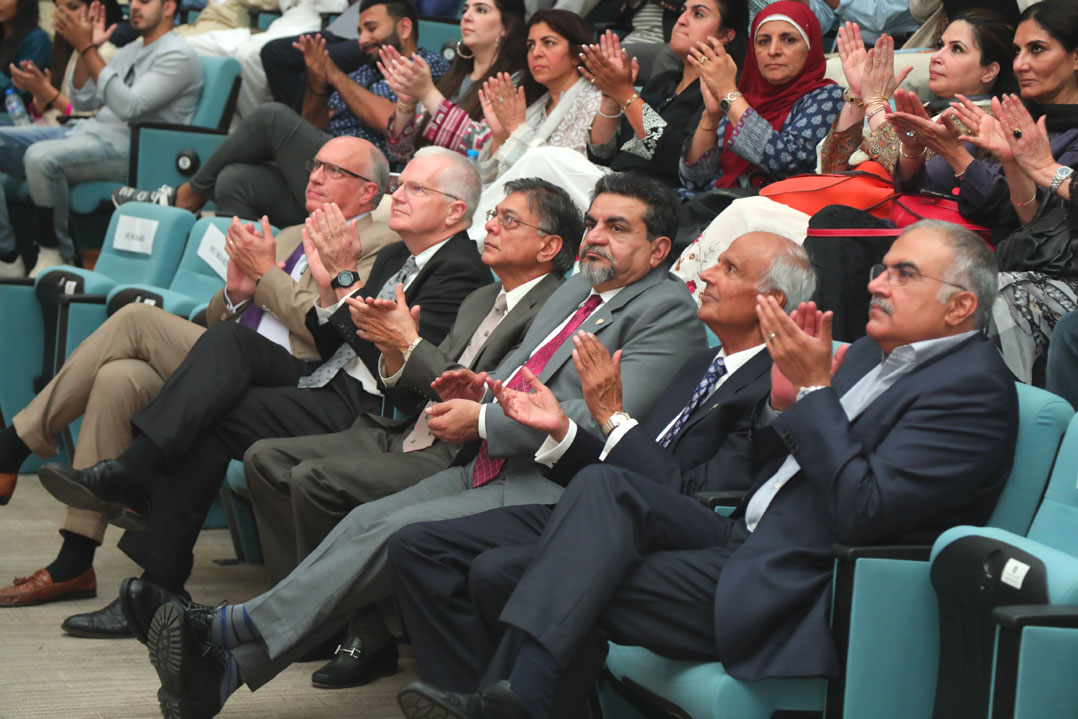 HU Board Members and Dhanani family members amongst the audience for the evening.
HU Board Members and Dhanani family members amongst the audience for the evening.
“Knowledge that is collected and formed into data and research are assets to any university. It creates material ready for collaboration, which is an enabler. There are institutions within and outside of the country that are ready to collaborate and this should be taken advantage of, just as Habib is doing”, said Dr Sabieh.
Speaking in terms of conducting research at the undergraduate level, the panel unanimously agreed that the change has to be brought around at a “teaching level.” Dr Aamir spoke of humans being “social beings, therefore faculty members need to respond to their needs by encouraging research both systematically and unsystematically. Research should not always have to lead up to some credit or grade.”
Dr Kulsoom added that “it is a fallacy that all those who have PhD’s are ready to teach at any level. We need to be trained educators and that requires heavy focus on pedagogy. Even the best teachers have to keep up with the times [which]comes from continuous professional development. Universities need to invest in pedagogy and training.”
Dr Saleem summed up stating all children in the current generation have virtual access to all answers, they only need to be prodded in the right direction which expands their curiosity, not limits it- “every child has access to answers. They have the opportunity to pursue knowledge out of their own curiosity. Even schoolchildren can do innovative work.”
